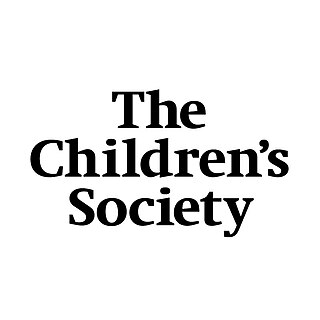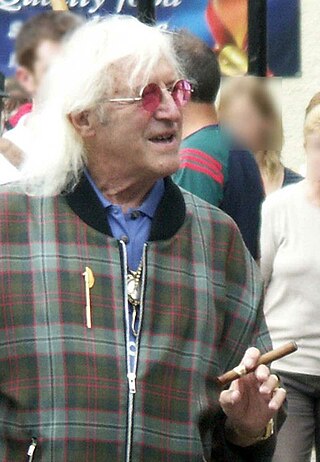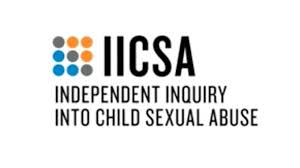Related Research Articles

The Children's Society, formally the Church of England Children's Society, is a United Kingdom national children's charity allied to the Church of England.
The North Wales child abuse scandal was the subject of a three-year, £13 million investigation into the physical and sexual abuse of children in care homes in the counties of Clwyd and Gwynedd, in North Wales, including the Bryn Estyn children's home at Wrexham, between 1974 and 1990. The report into the scandal, headed by retired High Court judge Sir Ronald Waterhouse QC, which was published in 2000, resulted in changes in policy in England and Wales into how authorities deal with children in care, and to the settling of 140 compensation claims on behalf of victims of child abuse.
The 2009 Plymouth child abuse case was a child abuse and paedophile ring involving at least five adults from different parts of England. The case centred on photographs taken of up to 64 children by Vanessa George, a nursery worker in Plymouth. It highlighted the issue of child molestation by women, as all but one of the members of the ring were female.
The sexual abuse scandal in the English Benedictine Congregation was a significant episode in the series of Catholic sex abuse cases in the United Kingdom. The dates of the events covered here range from the 1960s to the 2010s.
Frank Beck was an English convicted child sex offender. He was employed by the Leicestershire County Council as the officer-in-charge of several children's homes in Leicestershire, between 1973 and 1986. Though holding only a 'middle management' grade within the hierarchy of Leicestershire Social Services, Beck quickly established an esteemed reputation among his professional peers as an innovative, dynamic and extraordinarily effective practitioner in dealing with the emotional and behavioural complexities of troubled young people placed in his charge. Beck was later at the centre of Britain's biggest investigation into institutional child abuse, between 1989 and 1991.
The Rochdale child sex abuse ring involved underage teenage girls in Rochdale, Greater Manchester, England. Nine men were convicted of sex trafficking and other offences including rape, trafficking girls for sex and conspiracy to engage in sexual activity with a child in May 2012. This resulted in Greater Manchester Police launching Operation Doublet to investigate further claims of abuse with 19 men so far being convicted. Forty-seven girls were identified as victims of child sexual exploitation during the police investigation. The men were British Pakistanis, which led to discussion on whether the failure to investigate them was linked to the authorities' fear of being accused of racial prejudice. The girls were mainly White British.
The Congregation of the Sisters of Nazareth, until recently known as the Poor Sisters of Nazareth, are a Roman Catholic apostolic congregation of religious sisters of pontifical right, based in London, England. Members live in "Nazareth Houses" in English-speaking countries around the world: the UK, Ireland, United States, Australia, New Zealand and South Africa.

Operation Yewtree was a British police investigation into sexual abuse allegations, predominantly the abuse of children, against the English media personality Jimmy Savile and others. The investigation, led by the Metropolitan Police Service (Met), started in October 2012. After a period of assessment, it became a full criminal investigation, involving inquiries into living people, notably other celebrities, as well as Savile, who had died the previous year.

It emerged in late 2012 that Jimmy Savile, an English media personality who had died the previous year, sexually abused hundreds of people throughout his life, most of them children but some as old as 75, and most of them female. He had been well known in the United Kingdom for his eccentric image and was generally respected for his charitable work, which associated him with the British monarchy and other individuals of personal power.
The Elm Guest House was a hotel in Rocks Lane, near Barnes Common in southwest London. In a list produced by convicted fraudster Chris Fay, several prominent British men were alleged to have engaged in sexual abuse and child grooming at the Guest House in the late 1970s and early 1980s. Labour MP Tom Watson, having heard testimony from Carl Beech, suggested in an October 2012 statement to the House of Commons that a paedophile network which had existed at this time may have brought children to parties at the private residence.

The Rotherham child sexual exploitation scandal consists of the organised child sexual abuse that occurred in the town of Rotherham, South Yorkshire, Northern England from the late 1980s until present and the failure of local authorities to act on reports of the abuse throughout most of that period. Researcher Angie Heal, who was hired by local officials and warned them about child exploitation occurring between 2002 and 2007, has since described it as the "biggest child protection scandal in UK history". Evidence of the abuse was first noted in the early 1990s, when care home managers investigated reports that children in their care were being picked up by taxi drivers. From at least 2001, multiple reports passed names of alleged perpetrators, several from one family, to the police and Rotherham Council. The first group conviction took place in 2010, when five British-Pakistani men were convicted of sexual offences against girls aged 12–16. From January 2011 Andrew Norfolk of The Times pressed the issue, reporting in 2012 that the abuse in the town was widespread and that the police and council had known about it for over ten years.

Child sexual abuse in the United Kingdom has been reported in the country throughout its history. In about 90% of cases the abuser is a person known to the child. However, cases during the second half of the twentieth century, involving religious institutions, schools, popular entertainers, politicians, military personnel, and other officials, have been revealed and widely publicised since the beginning of the twenty-first century. Child sexual abuse rings in numerous towns and cities across the UK have also drawn considerable attention.

The Independent Inquiry into Child Sexual Abuse (IICSA) in England and Wales was an inquiry examining how the country's institutions handled their duty of care to protect children from sexual abuse. It was announced by the British Home Secretary, Theresa May, on 7 July 2014. It published its 19th and final report on 20 October 2022.

Dame Lowell Patria Goddard, is a former New Zealand High Court judge, from 1995 to 2015. She is thought to be the first person of Māori ancestry to have been appointed to the High Court. In 1988, she was one of the first two women to be appointed Queen's Counsel in New Zealand and in 1989 became the first woman to hold a Crown warrant. In 1992, she became Deputy Solicitor-General for New Zealand. Between 2007 and 2012 she chaired New Zealand's Independent Police Conduct Authority (IPCA). In 2010 she was elected as an independent expert to the United Nations Subcommittee on the Prevention of Torture (SPT) and served in that capacity until 2016. From February 2015 until August 2016, she chaired the Independent Inquiry into Child Sexual Abuse in England and Wales.
The Anglican Communion sexual abuse cases are a series of allegations, investigations, trials, and convictions of child sexual abuse crimes committed by clergy, members of religious orders and lay members of the Anglican Communion.
The Scottish Child Abuse Inquiry was established in October 2015 to inquire into cases of abuse of children in care in Scotland. It was to report and make recommendations within four years by 2019. But this deadline was later changed to "as soon as reasonably practicable". Concerns have been raised about mounting costs and delays in the Inquiry. Six years after the start of the on-going Inquiry and long after the original deadline, Lady Smith released a report which was critical of the previous Scottish Government for the 'woeful and avoidable' delay in setting up the Inquiry.
Sammy Woodhouse is an English activist against child sexual abuse. She was a victim of the Rotherham child sexual exploitation scandal, which she helped expose by giving an anonymous interview to Andrew Norfolk of The Times. Woodhouse has actively supported pardoning child sexual abuse victims for crimes they were coerced into committing.
Nottinghamshire sex abuse allegations are centred on claims made by children in care homes and foster care. Since 2010 Nottinghamshire Police have started three operations to study historic child abuse in Nottingham and Nottinghamshire, England. The Independent Inquiry into Child Sexual Abuse will look into any institutional failures to protect children in council care.
Medomsley Detention Centre was a prison for young male offenders near Consett in Durham, England from 1961 until the late 1980s, where more than 1,800 living former inmates have reported sexual and physical abuse by staff. Police believe many of the staff belonged to a child sex abuse ring.
Amberdale children's home was a council run home in Stapleford in Nottinghamshire, England, where staff committed serious sexual offences against girls and boys in the 1980s. Some staff received significant prison sentences.
References
- 1 2 3 4 5 6 7 Mitchell, Hannah (6 December 2017). "Former children's home worker jailed for six years for assault on child". Nottingham Post. Archived from the original on 10 January 2018. Retrieved 22 February 2020.
- 1 2 3 4 5 6 7 8 "Andris Logins jailed for Nottinghamshire children's home sex abuse". BBC News. 23 March 2016. Archived from the original on 31 December 2016. Retrieved 22 February 2020.
- 1 2 3 4 "'Hundreds sexually abused in Nottinghamshire's care system'". BBC News. 1 October 2018. Archived from the original on 3 November 2019.
- 1 2 3 4 5 6 7 8 9 10 11 12 13 14 15 16 17 18 Barnes, Liam (18 June 2019). "Beechwood: 'I can't believe the evil that happened there'". BBC News. Archived from the original on 5 July 2019.
- 1 2 3 4 5 ""Evil" care home worker jailed for sexually abusing children". Nottingham Post. 25 January 2002. Archived from the original on 3 November 2019.
- 1 2 3 4 5 6 7 8 9 10 Whitfield, David (28 August 2018). "Beechwood children's home: The history of the 'home from hell' in Nottingham". Nottingham Post. Archived from the original on 23 June 2019.
- 1 2 3 4 5 6 7 8 9 10 Whitfield, David (3 October 2018). "'How paedophile Andris Logins groomed me at Beechwood': Latest from the Independent Inquiry into Child Sexual Abuse in Nottingham". Nottingham Post. Archived from the original on 4 October 2018.
- 1 2 "Beechwood abuse inquiry: Worker 'could have lost job'". BBC News. 18 October 2018. Archived from the original on 23 March 2019.
- 1 2 3 4 5 Whitfield, David (18 December 2018). "This is what has happened to Beechwood children's home since it closed". Nottingham Post. Archived from the original on 23 June 2019.
- 1 2 3 "Reports of Nottinghamshire child sexual abuse 'not believed'". BBC News. 3 October 2018. Archived from the original on 23 March 2019.
- 1 2 3 4 "Children in care in Nottingham 'abused by predators'". BBC News. 31 July 2019. Archived from the original on 31 August 2019.
- 1 2 3 4 "Children abused in Nottinghamshire 'had nowhere to turn'". BBC News. 2 October 2018. Archived from the original on 3 November 2019.
- ↑ Whitfield, David (27 February 2018). "How one woman survived the 'terrifying ordeal' of Beechwood children's home to become an inspector". Nottingham Post. Archived from the original on 23 June 2019.
- ↑ "Nottingham abuse survivor: 'I still suffer nightmares'". BBC News. 31 July 2019. Archived from the original on 1 September 2019.
- ↑ "Abuse inquiry told boy was 'jailed for sex with men'". BBC News. 26 October 2018. Archived from the original on 23 March 2019.
- ↑ "Rapist 'visited victim at Nottinghamshire children's home'". BBC News. 4 October 2018. Archived from the original on 23 March 2019.
- 1 2 3 4 "Child abuser is sent to jail for 20 years". Eastwood & Kimberley Advertiser. 31 March 2016. Archived from the original on 3 November 2019.
- ↑ "Paedophile jailed for 20 years could now 'open the floodgates' says abuse survivor". Mansfield & Ashfield Chad. 23 March 2016. Archived from the original on 24 March 2017.
- ↑ Whitfield, David (31 July 2019). "Police react to IICSA report - and the question of whether some abusers could have escaped justice". Nottingham Post. Archived from the original on 30 October 2019.
- 1 2 3 "Nottingham children's home abuser Barrie Pick jailed for six years". BBC News. 6 December 2017. Archived from the original on 22 December 2017. Retrieved 22 February 2020.
- 1 2 3 4 5 6 "Paedophile's wife researched victims' care records". BBC News. 29 April 2016. Archived from the original on 15 April 2017. Retrieved 22 February 2020.
- 1 2 "Nottinghamshire child sex abuse: Council praises 'brave' victims". BBC News. 24 March 2016. Archived from the original on 3 November 2019.
- 1 2 Whitfield, David (1 August 2019). "It took a total of 154 years to bring these abusers to justice after concerns were first raised". Nottingham Post. Archived from the original on 30 October 2019.
- 1 2 "Former care worker convicted of multiple child sex offences". Nottingham Post. 14 December 2001. Archived from the original on 31 March 2019.
- ↑ "Alleged victim gives evidence in sex abuse trial". ITV News. 27 November 2017. Archived from the original on 3 November 2019.